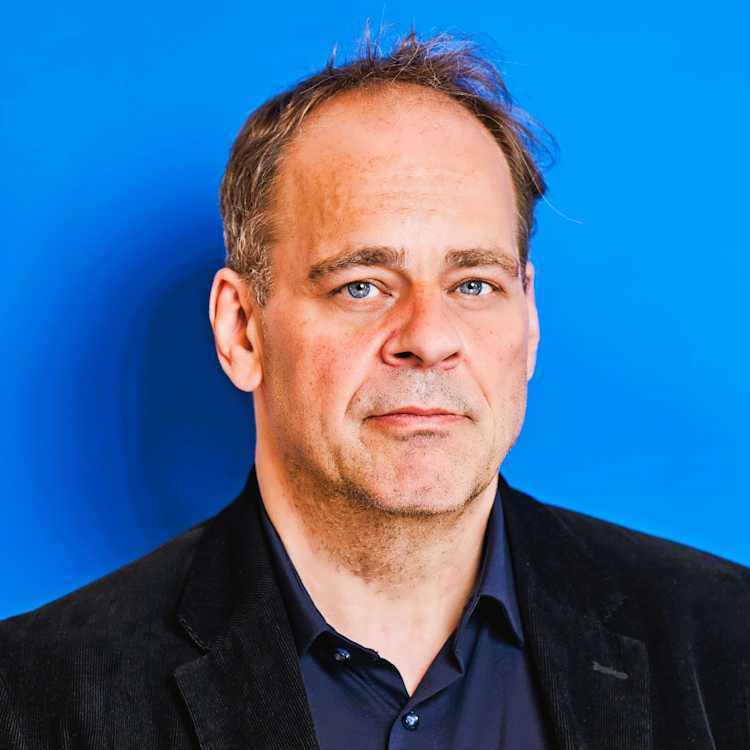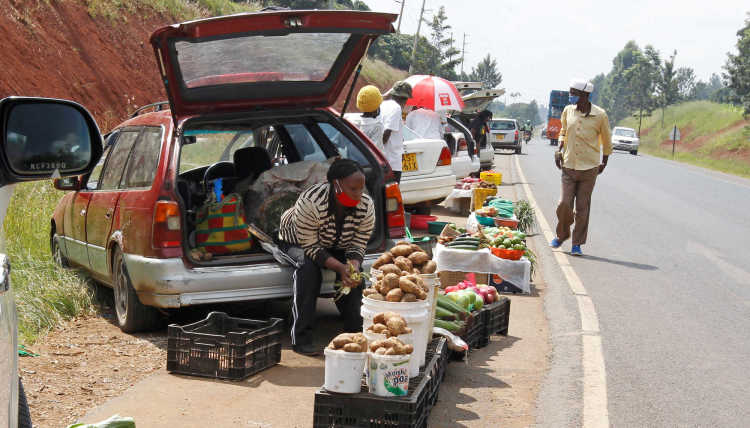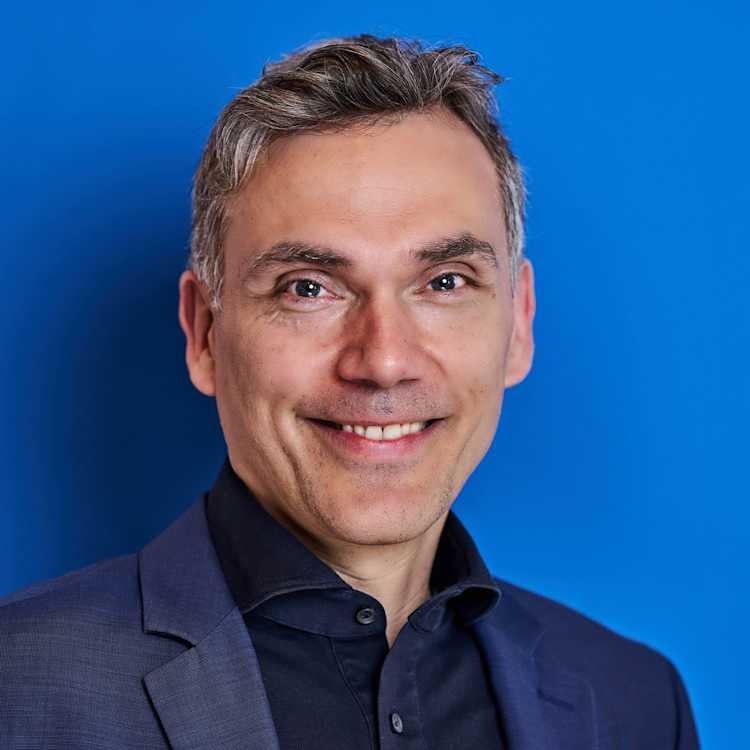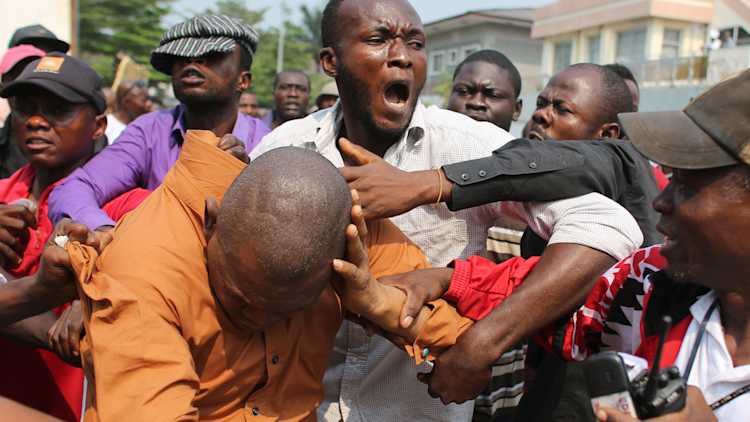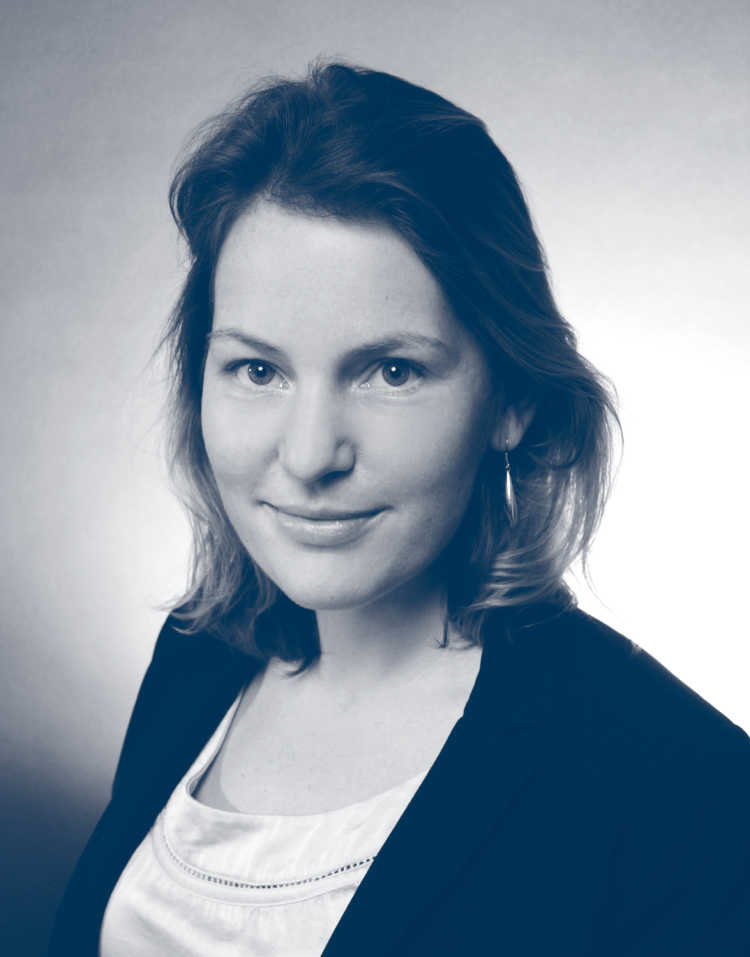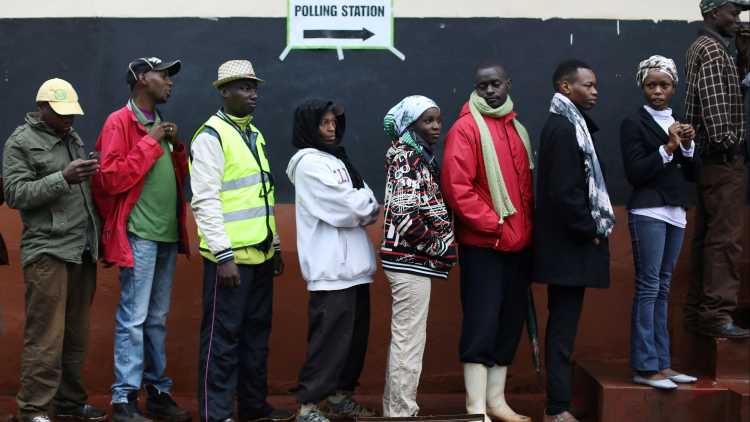- Home
- Publications
- GIGA Focus
- Ten Things to Watch in Africa in 2020
GIGA Focus Africa
Ten Things to Watch in Africa in 2020
Number 1 | 2020 | ISSN: 1862-3603
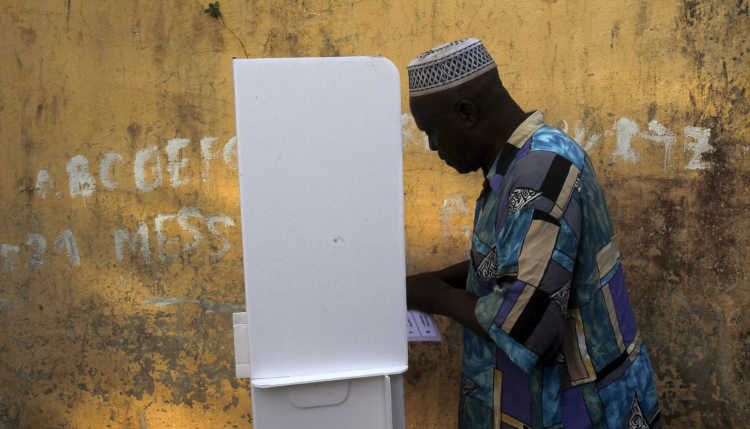
Socio-economic and political developments in sub-Saharan Africa remain a mixed bag. While crises and structural problems occupy our attention, other developments justify a more optimistic outlook: relations between countries on the continent as well as with Europe and other world regions show signs of hope and improvement. We present a selective list and analysis of “ten things to watch” in Africa in 2020.
Elections and democratisation: The year ahead will be one of high-risk elections in many African countries, of which five arguably stand out: Burkina Faso, Burundi, Côte d’Ivoire, Ethiopia, and Guinea. “Explosive” elections are often connected to contested term limits for presidents.
Peace and security: As in previous years, challenges emerge from ever-present power struggles as well as from contested elections, weak states, conflicts between identity groups, and – particularly in West and East Africa – jihadism. The latter poses the biggest challenge in the Sahel, where international support has simultaneously become both more important and more difficult.
Socio-economic development: While many structural problems persist, there are signs for winds of change. Regional economic integration projects such as the African Continental Free Trade Area and the common currency, eco, in West Africa advance, and legal obstacles to more equal gender relations are increasingly being called into question. In times of global confrontations between the United States, China, and other countries, “trade wars” provide threats but also opportunities for Africa.
Policy Implications
As a member of the United Nations Security Council and assuming the EU presidency, Germany’s involvement in African affairs will be greater than usual in 2020. African and external actors, such as the European Union, should act early to mitigate conflict risks, especially with regard to high-stakes elections in several countries and to contain the spread of jihadist violence. Reform efforts require strong but prudent international support, so they can survive domestic political pushback.
This GIGA Focus deviates from the series’ typical format. Apart from the two main authors, it is the joint production of several IAA staff. Charlotte Heyl authored the section on elections and term limits; Malte Lierl wrote the sections on Guinea and Burkina Faso. Nicole Hirt penned the part on Ethiopia; Julia Grauvogel on Burundi. Tabea Lakemann contributed the parts on Cote d’Ivoire and the eco. Matthias Basedau wrote the section on current conflicts; Renate Hartwig authored the part on the legal aspects of gender equity and discrimination. Jann Lay penned the contribution on trade wars and Africa. Matthias Basedau, Tabea Lakemann, Malte Lierl, and Christian von Soest were the editors for this GIGA Focus.
Explosive Elections and Contested Term Limits
In 2020, nine countries in sub-Saharan Africa will hold presidential elections: Burkina Faso, Burundi, the Central African Republic (CAR), Côte d’Ivoire, Ghana, Guinea, the Seychelles, Tanzania, and Togo. In addition there will be parliamentary elections in Ethiopia, a parliamentary system in which the prime minister is head of the executive. All nine presidential countries have in common that their constitutions prescribe a presidential term limit. Most African countries introduced such term limits in the early 1990s as a check to presidential power, but since the later years of that decade incumbents have frequently contested them.
In five of the upcoming elections, the term limits do not pose a threat to the incumbents because they will be vying for their first re-election. In Burkina Faso, for instance, Roch Marc Kaboré is facing his first re-election attempt (like his fellow presidents in the CAR, Ghana, the Seychelles, and Tanzania). However, in the four other cases the incumbents have served at least two terms in presidential office and in all of these countries the constitutional term limit was under intense debate in recent months. In Togo, Faure Gnassingbé will run for his fourth term despite the re-introduction of a two-term limit in the 2019 constitutional amendment in response to strong popular protest. The constitution’s transitional provision clarified that Gnassingbé’s first three terms do not count under the 2019 clause. In Burundi, many observers expect Pierre Nkurunziza to bid for a fourth term – even after his third one was already constitutionally and violently contested (more below). In Côte d’Ivoire, Alassane Ouattara is approaching the end of his second term and has issued contradictory statements about whether he will run again for presidential office (more below). Guinea’s Alpha Condé has openly shown his ambitions for a third term, aiming at a constitutional referendum.
In all of these cases, it seems to be the president and his political allies rather than the constitutional rules that decide whether it is time to step down or not. However, this year’s sample of term-limit contests does not tell the whole story. In countries like Cabo Verde, Ghana, or Tanzania, politicians have constantly respected the term limit and at least two incumbents have obeyed and left power in due course since 1990.
The 2020 Presidential Elections in Guinea: An Ethnic Powder Keg?
In Guinea, 81-year-old president Condé has refused to rule out his candidacy in the 2020 presidential elections, despite a constitutional term limit to that effect. In September 2019, he asked his government to look into drafting a new constitution (Africanews 2019). Legislative elections, originally scheduled for January 2019, have been postponed at least until February 2020. The 2020 elections will take place in a deeply divided country. Guinea’s political forces represent the country’s two dominant ethnic communities. Condé is Malinké (Mandinka) and opposition leader Cellou Dalein Diallo is Peulh (Fulani).
In Guinea, the widespread public belief holds that whoever wins will use – and, if necessary, abuse – the powers of the presidency for near-absolute control over the political system, to create advantages for their own ethnic group. Thus the stakes are high, especially for the Peulh – who have never held the presidency. Militants from both political camps are willing to take protests to the streets, as bloody clashes during the 2010 and 2015 elections have shown. Condé’s government has responded to protests with increasing repression and the intimidation of journalists. According to Amnesty International (2019), at least 70 protesters and bystanders have been killed since 2015 while 109 citizens have died in custody. In 2020, political polarisation will be higher than ever. Condé still wants to hold a constitutional referendum even in spite of mass demonstrations against his grip on power in the last few months.
The 2020 Elections in Ethiopia: Political Reforms under Severe Stress
In December 2019, Ethiopia’s Prime Minister Abiy Ahmed was awarded the Nobel Peace Prize for breaking the stalemate with Eritrea and advancing political reforms in his country, including the liberalisation of the political space and the improvement of human rights. Following his election as prime minister in April 2018, Abiy loosened the iron grip of his predecessors on the press, the political opposition, and on civil society. His aim is to allow peaceful competition between parties in the upcoming national elections, which are scheduled for May 2020. He is also planning to restructure the Ethiopian People’s Revolutionary Democratic Front (EPRDF) ruling coalition, which has governed the country since 1991 and currently holds all 100 per cent of the parliamentary seats. Abiy’s objective is to merge the ethnic-based coalition EPRDF into the Ethiopian Prosperity Party in the face of resistance from its founder, the once-dominant Tigray People’s Liberation Front (TPLF).
Ethnicity has always been a political factor in Ethiopian politics, but since Abiy initiated his reforms, ethnic strife and conflicts have increased in different corners of the country – causing the displacement of about three million people. Re-establishing the state’s monopoly on power without regressing into repressive policies is one of the main challenges the prime minister now faces. Otherwise, free and fair elections will not be possible. One additional threat comes from his former supporter Jawar Mohammed, a powerful social media mogul and diaspora returnee who is currently mobilising young ethnic Oromo against Abiy and who has incited street violence. Abiy is himself an Oromo, the largest ethnic group in Ethiopia – but one which has been excluded from political participation over the centuries. However it seems that Oromos are currently split, and many seem to be disappointed that the prime minister acts as a defender of the Ethiopian nation and not as an Oromo activist. Another challenge consists in the sheer number of opposition groups, currently about 170, many of whom are unhappy with a new election law and doubt that the upcoming elections will be free and fair. Given the high levels of communal violence, the elections will possibly have to be postponed. In the best case, the elections will mark the beginning of multiparty democracy. In the worst one, they will further increase ethnic violence – which will challenge the prime minister’s ideology of togetherness, if not the national cohesion of Ethiopia itself.
The 2020 Elections in Burundi: A Risk for the Entire Sub-Region?
The report by the United Nations Commission of Inquiry on Burundi states that “the 2020 elections pose a major risk [to the country]” (2019: 18). According to the report, common risk factors for atrocities – including severe political and economic instability, the weakness of state structures, the political activism of potential perpetrators of violence, as well as the lack of a viable presence of civil society or international actors – can all be observed in the country. This is not only alarming for the 11 million Burundians, but also for the already-fragile Great Lakes region as a whole.
The controversial 2015 elections in Burundi highlighted the repercussions of domestic political turmoil for its neighbouring countries in pointed terms. Following a third-term bid and a failed coup to prevent his renewed candidacy, president Nkurunziza was re-elected amid violent unrest. More than 400,000 people fled to the Democratic Republic of Congo (DRC), Tanzania, and Rwanda. The camps in the first two countries are among the least funded worldwide (UNHCR 2020), constituting a significant challenge for the hosts. Burundian rebel groups, which emerged after the failed coup d’état, are operating out of the DRC. This has repeatedly led to deadly border clashes with Burundian forces. Moreover, severe tensions arose between Burundi and Rwanda in the aftermath of the elections over alleged interferences in domestic politics on both sides. In such a precarious regional constellation, electoral turmoil in Burundi would have implications beyond this small African country itself.
Nkurunziza has not yet declared his candidature for the next elections, which are scheduled for 20 May 2020. However, most observers expect him to run again as no successor has been designated thus far. This uncertainty surrounding Nkurunziza’s candidacy has exacerbated grievances within the ruling Conseil National Pour la Défense de la Démocratie–Forces pour la Défense de la Démocratie (CNDD-FDD). The opposition registered under a new name, Congrès National pour la Liberté (CNL), in early 2019, but violent crackdowns on party meetings and the arbitrary arrests of its members continue regardless. During the 2018 referendum, which sanctioned the president staying in power until 2034, the exiled opposition platform declared its intention to replace Nkurunziza by any available means. It remains hard to predict how the domestic opposition, aggrieved by constant repression, would react to a politicised poll this year. Regional mediation attempts by the East African Community have failed, and the regime has already declared that it will not allow Western observers to oversee this year’s elections. Taken together, the outlook is dismal, as a free and fair poll seems highly unlikely under these circumstances. International actors need to prepare for the possibility of electoral violence, and for conflict in the aftermath. Their focus should be on supporting the remaining civil society and democratic opposition actors in the country, and on providing humanitarian assistance – while also keeping up pressure on the regime.
Haunted by the Past: Côte d’Ivoire’s 2020 Presidential Election
The stakes are high for Côte d’Ivoire’s presidential election in October 2020. The country is not only an anchor of stability bordering the fragile Sahel region, but has also re-emerged in the past decade as francophone West Africa’s economic powerhouse and an increasingly attractive investment destination. With the incumbent Ouattara due to step down after the constitutionally mandated two terms in office, many fear for the relative stability of the past few years. Having previously declared that it was time to hand over the reins to the next generation, 77-year-old Ouattara recently announced, however, that he would stand again if others from his generation did the same. The role of his predecessor and long-term adversary Laurent Gbagbo, aged 74, is one of the great unknowns. After having lost the presidential election to Ouattara in 2010, Gbagbo was charged before the International Criminal Court (ICC) in The Hague with crimes against humanity during the ensuing period of post-election violence. Following his acquittal in January 2019, he is currently in Belgium awaiting the decision on an appeal against the ruling – and would probably stand for president again, if able to return to Côte d’Ivoire. Voters may thus be faced with the same choice as they were in 2010, which led to months of violent confrontation between supporters of Gbagbo and Ouattara.
Despite stating that it was time to relinquish power, Ouattara seems intent on controlling the electoral process. In order to reduce the number of candidates, he has proposed the introduction of a sponsorship system and a deposit of CFA franc 200 million (approximately EUR 300,000). Claiming that a 2016 constitution change would allow him to stand again, the incumbent has opposed the introduction of an age limit that would bar all members of his generation from standing. As for the younger generation, former rebel leader turned prime minister turned popular presidential candidate Guillaume Soro would have his own ambitions derailed in late 2019. A timely arrest warrant was issued upon his scheduled return to Côte d’Ivoire on charges of destabilisation and embezzlement of public funds, thus preventing him from entering the country.
Divisions within the population run partly along the ethnic and cultural North–South divide, but also concern the country’s relationship with France. Anti-French sentiments run deep after decades of economic domination and repeated military interventions by the former colonial power. Ouattara, who was able to assume his presidency after French forces had helped capture Gbagbo, has pursued an agenda of economic liberalism and maintains a close relationship with the European country. During a state visit to Abidjan in December 2019, President Emmanuel Macron briefly pointed to the importance of respecting term limits – but also allowed Ouattara to shine while announcing the end of the unpopular CFA franc (see the section on West Africa’s new currency). It is this close relationship that has fuelled fears of a backlash against French citizens and businesses, as well as their Ivoirian allies. Ouattara’s next steps will determine the intensity of the confrontation.
Elections in Burkina Faso: Between Hope and Trepidation
Burkina Faso originally took a highly promising turn towards multiparty democracy following the 2014 revolution that ousted authoritarian ruler Blaise Compaoré from power. Former opposition politician Kaboré was elected president in free and fair elections in 2015. A constitutional reform process was proposed that would move the country from a presidential to a semi-parliamentarian system, strengthening civil liberties and guarding against future abuses of power. However, the pro-democracy advances have since come under threat. The power vacuum of 2015 enabled jihadists to infiltrate the country and destabilise the state through vicious attacks and mass intimidation. By 2019, the country was engulfed in an armed conflict with extremist groups and state institutions have ceased to function in some provinces. Holding a constitutional referendum has proven logistically impossible. With many parts of the country plunged into chaos, Kaboré has come under pressure both from within and without. Will the 2020 elections favour Kaboré’s MPP party? Will they bring a resurgence of the authoritarian forces loyal to ex-ruler Compaoré? Or will they strengthen democratic opposition parties, such as the Union pour la Constitution (UPC)? In the absence of reliable opinion polls, the outcome is difficult to predict.
More important than the election outcome, however, is the electoral process itself. With presidential elections, legislative elections, and a constitutional referendum coming up, nothing less than the legitimacy of the state is at stake. Extremists will try to sabotage the elections and create conflict where they can. The government’s security forces have responded unwisely, doing damage through using excessive violence against civilians and terrorism suspects – including summary executions (Human Rights Watch 2019). Intercommunal conflicts, which for decades have been resolved peacefully, are erupting into interethnic violence. Communities have armed themselves by founding self-defence militias. While the government is rhetorically committed to rebuilding social cohesion, a viable political strategy and concrete action are lacking. In a situation like this, failed elections would bring state and society to the verge of collapse. Yet, Burkina Faso has a history of beating the odds. The electoral commission has displayed exemplary independence and professionalism; the 2015 elections were fair and credible. If political parties can continue their commitment to cooperation and consensus around the elections, the election year 2020 could become a turning point and bring Burkina Faso closer to overcoming the crisis.
Jihadism: The Most Virulent Threat to Peace and Security
Explosive elections are often closely related to other underlying conflicts. Côte d’Ivoire is still recovering from an armed conflict that continues to overshadow its political development. Reformers such as Ethiopia’s Abiy face stiff resistance inside and outside elections, as members of his own ethnic group are mounting increasingly aggressive protests against him. Uncertainty on the succession of long-standing presidents form an additional conflict risk. A case in point is Cameroon with President Paul Biya, where the conflict over the secession attempt of the Southern Cameroons/Ambazonia has lingered on. Being in his mid-eighties, Biya lacks an apparent heir; regional and international actors should work on resolving the crisis now. In addition to the ever-present personal power struggles, dissatisfaction with governments over lacking public goods and corruption, demographic changes, and conflicts between ethnic and religious groups contribute to the latent conflict potential in many African countries.
Jihadist violence has emerged as one of the biggest threats to security in multiple parts of Africa. Recent escalations in Somalia, Burkina Faso, and Mali are a reminder of the virulence of the problem. Three hotspots of jihadism persist, and have strong potential for spillover: Somalia in the Horn of Africa, Nigeria in West and Central Africa, as well as the Western Sahel, with, as noted, strong escalation in Burkina Faso and central Mali over the past year. Largely unknown to the international public, Mozambique has been also increasingly affected by a jihadist uprising, while in the eastern DRC the ADF rebel group recently pledged allegiance to Islamic State.
Governments have little alternative to robustly engage jihadists, but initiatives to win the hearts and minds of potential supporters and the general public as a whole are even more imperative. Radical ideologies become relatively attractive where governments fail to deliver on security, legitimacy, and welfare. Instability and other international influences from North Africa and the Middle East, especially the Gulf States, should be closely watched and countered, if necessary. Although peace and security will not be brought to Africa primarily from outside – only African solutions will be sustainable in the long run –, external support remains necessary. Western and other governments have pledged to work on, for example, fragility in the Sahel, although not least because they want to limit mass migration. Escalation in Burkina Faso and other Sahelian countries teaches us that, in the short run, African security forces require support from outside. An effective Africa policy will require taking responsibility, not just paying lip service to principles of peace and security while letting others do the (dangerous) dirty work. At the same time, exercising caution regarding military action is certainly wise. Service members should not be put at risk without good reason. Military intervention can backfire, and the full consequences can rarely be anticipated. France’s Sahelian engagement – once enthusiastically greeted by Malians – has become increasingly unpopular in the country for example.
Trade Wars and Africa: Weakness Turned into Opportunity
The trade wars between the United States and the rest of world, most notably China, have negative effects on trade flows between and economic growth within the quarrelling countries. Africa will only be indirectly affected, mainly through decreased demand for raw materials in an economic downturn (partly) resulting from these trade wars. The International Monetary Fund (2019) therefore estimates that resource-intensive countries will grow at only 2.5 per cent compared to 6 per cent for non-resource-intensive ones. The negative impacts will thus be most severe in those countries most reliant on raw materials, and on US or Chinese markets. Sudan, exporting its oil almost exclusively to China, is a case in point.
Some developing countries, including those in Asia and Latin America, may have benefitted from the current trade war due to trade-diversion effects, for example by substituting for Chinese exports to the US. However few, if any, African countries are among such “winners.” This is because few produce the affected goods for world markets, and because of the generally low integration of African countries into global production networks. In the current situation, non-participation in global value chains also shields sub-Saharan Africa, however, from potential disruptions due to trade and investment policies elsewhere. The crisis of the multilateral trade and investment regime should not provide the pretext for an inward-looking economic strategy, as openness to investment and trade is likely to be an important condition for substantially accelerated economic progress in the many small and capital-scarce African economies. African governments have already put more emphasis on regional economic integration. The most prominent examples are the African Continental Free Trade Area (AfCFTA), which entered into force in 2019 and will (partially) take effect as a trade regime in 2020, or the West African common currency project outlined earlier. As these recent examples show, progress in regional economic integration efforts can be speedy and substantial; it may well be that the vagaries of the world economy under Donald Trump’s presidency provide additional impetus too.
Implementing the Eco: West Africa’s Common Currency Project
In July 2019, the heads of state of the 15 members of the Economic Community of West African States (ECOWAS) agreed to introduce a common currency, the eco, in 2020. Their ambitious implementation schedule stands in stark contrast to the challenges presented by the region’s heterogeneity, chiefly between former French colonies on the one hand and former British ones on the other. Eight mostly francophone members of the regional bloc form the West African Economic and Monetary Union (WAEMU/UEMOA) and already share a common currency, the CFA franc, which is pegged to the euro and guaranteed by France. Lauded for promoting economic stability by its proponents, this monetary regime stemming from the colonial era is seen by many as a symbol of France’s continued economic dominance in the region and has prompted fierce criticism and protest for decades now. The end of the CFA franc was declared in December 2019, when Ivoirian president Ouattara announced an agreement with his French counterpart that the currency would be renamed the eco in 2020. It will also be reformed, reducing France’s role therein. However the eco will still be pegged to the euro, and France will still guarantee the currency in case of government default.
The new arrangement for the WAEMU countries is envisaged as a stepping stone on the way to a regional currency that includes all 15 ECOWAS members, which is still far from implementation. The non-WAEMU group includes countries as diverse as the economic giant Nigeria, accounting for the lion’s share of the ECOWAS region’s gross domestic product, and the small island state of Cabo Verde; all of those concerned currently still have their own individual currencies. Six convergence criteria for the common currency – including an inflation rate of 5 per cent or less, as well as limits on budget deficits and public debt – have been agreed on. Especially the non-WAEMU countries with flexible exchange rates are currently far from meeting these targets, with inflation rates in 2018 ranging from 1 per cent or less in WAEMU countries, to 10–12 per cent in Ghana and Nigeria, to a staggering 23 per cent in Liberia. These difficulties illustrate the deeper underlying issues: In order for a common currency to be a success, significant efforts and commitments are required on the part of individual governments. They will need to enhance fiscal discipline while foregoing independent monetary policy, as an important macroeconomic adjustment mechanism. In addition, the desired benefits of a common currency – most notably, the easier flow of goods and services across national borders – can only be realised if other obstacles to trade, such as deficient infrastructure, are tackled at the same time. Whether there is sufficient political will to do so remains unclear: especially the Nigerian leadership has been sending mixed messages regarding its commitment to regional integration recently, long hesitating to sign up to the AfCFTA, and closing its border to Benin too. Ghana remains committed to joining the common currency project as soon as possible, but insists on dropping the euro peg. Like its role model, the euro, the eco is thus a political project as much as an economic one. The year ahead will show to what extent the currency union can unite ECOWAS above and beyond the former French colonies.
Legal Winds of Change: Combatting Gender Inequity and Discrimination
Property rights and inheritance rules are contentious political issues, particularly so in Africa. We have seen governments dissolve over reforms of family and inheritance laws in the past, including in Côte d’Ivoire. The country is now on the verge of passing a new marriage law. The bill, approved by the Council of Ministers in March 2019 and part of a larger government plan, would provide a legal framework to substantially improve gender equity: Both spouses would get equal rights in deciding how to manage marital property, and women’s rights would be secured when it comes to inheritance – an aspect still undermined by customary practices in many African countries. Parliament still has to pass the bill, which is already being seen as a benchmark for other countries of the continent themselves currently discussing reforms of marriage and property rights. Zimbabwe is a case in point.
While such reforms address important gender inequities by advancing women’s rights, major gaps in marriage law remain. For example, the new legislation in Côte d’Ivoire applies only to formal marriage but not to marriages under customary arrangements or to cohabitation; it does not provide sufficient provisions to tackle child marriage; and, it explicitly prohibits same-sex marriage. Laws outlawing same-sex relations remain widespread in Africa. They exist in 31 out of the 54 African countries (including North Africa), with some still upholding the death penalty in such cases. However, there are also some positive developments; Botswana might be leading the way here. In June 2019, the country’s High Court ruled in favour of decriminalising homosexuality and rejected laws imposing prison sentences for same-sex relationships, stating they were unconstitutional. The landmark ruling overturned a law which had been in place since 1965, when it was brought in by the British colonial government.
Similarly, some countries have started to tackle child marriage – which remains common practice in many African countries. Despite provisions within some legal frameworks, it is de facto legalised in most (39) countries on the continent. Mozambique, which is among the top-ten countries in terms of the prevalence of child marriage, has now started to address the issue head on. The country recently passed a law that criminalises the practice, now being punishable with a prison sentence of up to 12 years. The law is the latest amendment to a set of reforms in the country designed to end discrimination against girls and empower children.
Footnotes
References
Africanews (2019), African Presidents Resist Term Limits: Guinea, Burundi, Cameroon, Rwanda, Uganda, 21 October, ww.africanews.com/2019/10/21/african-presidents-resist-term-limits-guinea-burundi-cameroon-rwanda-uganda/ (3 January 2020).
Amnesty International (2019), Guinea: Red Flags Ahead of the 2020 Presidential Election, submission for the UN Universal Periodic Review, 35th Session of the UPR Working Group, January 2020, https://reliefweb.int/sites/reliefweb.int/files/resources/AFR2910802019ENGLISH.PDF (3 January 2020).
Human Rights Watch (2019), ‘We Found Their Bodies Later That Day’ Atrocities by Armed Islamists and Security Forces in Burkina Faso’s Sahel Region, www.hrw.org/sites/default/files/report_pdf/burkinafaso0319_web2.pdf (3 January 2020).
IMF (2019), Sub-Saharan Africa Regional Economic Outlook: Navigating Uncertainty, www.imf.org/en/Publications/REO/SSA/Issues/2019/10/01/sreo1019 (2 January 2020).
UN Commission of Inquiry on Burundi (2019), Report of the Commission of Inquiry on Burundi, https://reliefweb.int/sites/reliefweb.int/files/resources/A_HRC_42_49_E.pdf (6 January 2020).
UNHCR (2020), Burundi Situation, www.unhcr.org/burundi-situation.html (6 January 2020).
General Editor GIGA Focus
Editor GIGA Focus Africa
Editorial Department GIGA Focus Africa
Regional Institutes
Research Programmes
How to cite this article
Lakemann, Tabea, and Malte Lierl (2020), Ten Things to Watch in Africa in 2020, GIGA Focus Africa, 1, Hamburg: German Institute for Global and Area Studies (GIGA), https://nbn-resolving.org/urn:nbn:de:0168-ssoar-66161-2
Imprint
The GIGA Focus is an Open Access publication and can be read on the Internet and downloaded free of charge at www.giga-hamburg.de/en/publications/giga-focus. According to the conditions of the Creative-Commons license Attribution-No Derivative Works 3.0, this publication may be freely duplicated, circulated, and made accessible to the public. The particular conditions include the correct indication of the initial publication as GIGA Focus and no changes in or abbreviation of texts.
The German Institute for Global and Area Studies (GIGA) – Leibniz-Institut für Globale und Regionale Studien in Hamburg publishes the Focus series on Africa, Asia, Latin America, the Middle East and global issues. The GIGA Focus is edited and published by the GIGA. The views and opinions expressed are solely those of the authors and do not necessarily reflect those of the institute. Authors alone are responsible for the content of their articles. GIGA and the authors cannot be held liable for any errors and omissions, or for any consequences arising from the use of the information provided.

